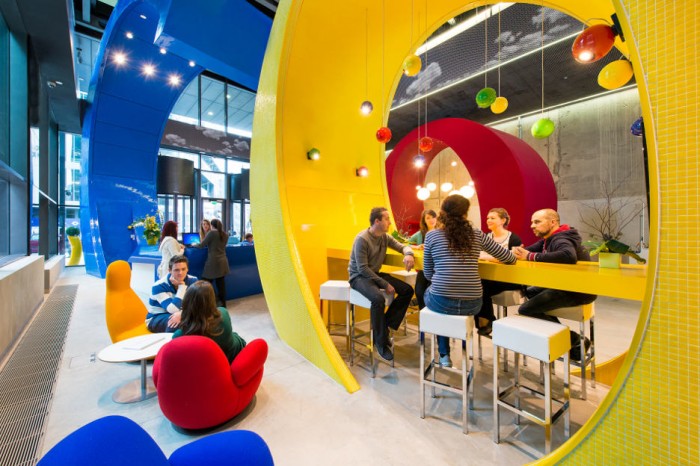The ‘workplace of the future’ is one that is fully customisable and caters for the needs of all working styles. Employees will no longer be confined to rigid structures and some forward-thinking companies are already leading the way in this area, introducing new technology solutions that harmoniously bring together flexibility, productivity, innovation and wellbeing.
Opendesk recently revealed an illustration of the future office desk prototype, which holds as much computing power as the hardware that typically used to sit on top of the desk.
While customisable working is not necessarily a new phenomenon, in the digital age employees shouldn’t have to worry about when and where they can plug in a piece of computing equipment or mobile device, nor should they be restricted with space, particularly in creative environments where group thinking and ideas sharing are paramount.
> See also: Employers still trapping workers in the office despite flexible working legislation – research
It pays to keep employees happy and by providing an environment in which they can perform best, companies in the technology sector are using workplace design to attract and retain talent.
Here are the key areas of technology and the ways that workplace design is due to change.
Customisable desks
A feature of the future office desk is that it can be adjusted so that staff can stand comfortably and continue to work by raising the desk to a higher level. Again, while stand-up desks aren’t necessarily new, they are gaining further buy-in from companies as they realise the multiple health and wellbeing benefits for staff.
So much so that Denmark, labelled one of the happiest nations in the world, has made giving employees the option to stand whilst carrying out sedentary tasks a legal requirement.
It’s likely that this movement is going to spread to other markets too, including the UK. Public Health Britain and Get Britain Standing are currently compiling new guidelines which are likely to suggest that workers should aim to stand for at least two hours per day, so health and safety representatives should act now to create a less sedentary culture.
The office desks of the very near future are those that provide staff with the flexibility to power up and down whenever required. Although technology and computing devices will always continue to change and advance, staff need a space in which they can feel comfortable as well as collaborate simultaneously.
Finding a balance between personalisation and collaboration is the key to the workplace of the future. The first ‘smart desk’ prototypes being developed allow workers to instantly access their own personalised settings via a cloud technology, which comes into effect when they connect to the desk.
Keeping employees happy
Devices to monitor staff wellbeing will play a big part in the workplace of the future. As developed nations such as UK continue to tackle the productivity puzzle, businesses are increasingly realising the value of keeping staff happy in boosting motivation and individual worker output.
Technology is currently being developed to allow companies to track the health of their staff, another trend which is gathering pace. Although devices such as GPS trackers are common in industries such as the logistics sector for monitoring driver progress, technology companies are now developing more sophisticated systems which monitor sentiment.
This is a result of the increased popularity of wearable technology, where devices can be used to track exercise, food intake, sleep patterns and other health-related information. According to recent research, in 2014 alone, over 10,000 companies across the globe offered staff fitness trackers.
But why is this relevant to the workplace of the future? Companies want to use science to not only scrutinise how staff complete tasks in work, but also what they’re doing outside of the working environment that is affecting their performance.
As an athlete would monitor their performance routinely, businesses looking to gain a competitive advantage are utilising technologies that can be used to boost workplace productivity and output.
Efficient space management
Workplace design has come full-circle in recent years. Open-plan offices are still a trend, however companies are realising the importance of striking a balance between collaborative and personal spaces.
In the workplace of the future, there is no hierarchy as to where good ideas are generated from. Most rooms will be multi-use, however there will be designated quiet rooms where employees can lock themselves in sound-proof environments to focus on highly cognitive tasks.
> See also: Can your organisation go 'office-less'?
The future workplace will be a place where staff come together in a central hub rather than be seen as a necessary task. This is particularly important in the technology sector, where companies are trialling flexible working hours which allow staff to work whenever they want as long as all tasks are completed to a high standard.
The workplace of the future is one that caters for all. Customisation, personalisation and collaboration will all play a big part as forward-thinking businesses look to adapt innovative technologies to provide them with a competitive edge.
Sourced from Nigel Crunden, business specialist, Office Depot










